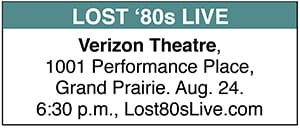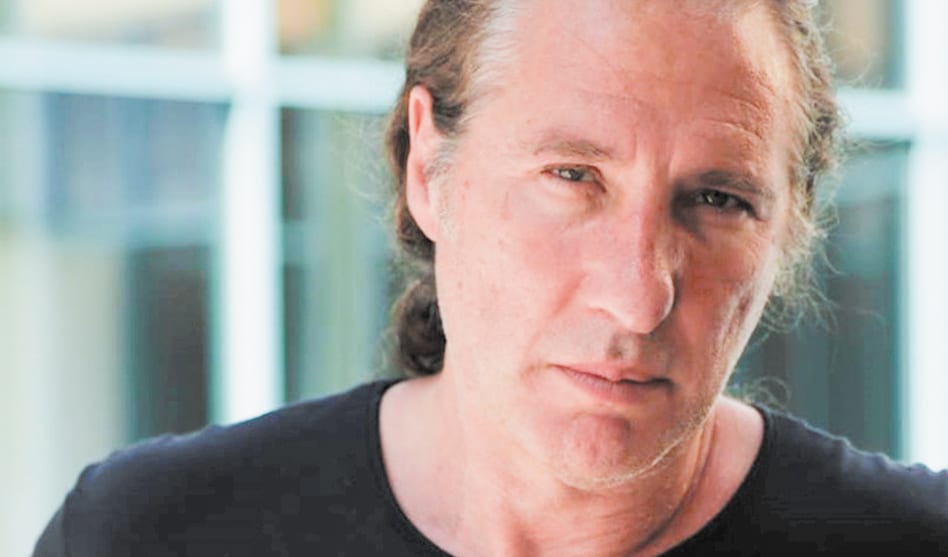Wang Chung’s Nick Feldman rekindles the ‘80s as part of a retro music tour
There are certain songs that have the power to transport listeners instantly to a bygone era. Wang Chung’s 1984 hit “Dance Hall Days” is, for me, one such track. The song’s opening guitar chords and drumbeats alone begin to evoke sentimental memories of the ‘80s: bold fashions, big hair, MTV (when it actually broadcast music videos), and John Hughes’ teen-angst movies. Two of the U.K. band’s chart topping 1986 follow-up hits — “Everybody Have Fun Tonight” and “Let’s Go” — have a similarly nostalgic effect.
Wang Chung’s two constituent members — Brits Nick Feldman and Jack Hues — join several Reagan Era bands (including, among others, Animotion, Book of Love, Missing Persons, and Nu Shooz) on Aug. 24, in Lost ‘80s Live, a concert dripping in hip nostalgia. We spoke with Feldman about Wang Chung’s chart successes, the music’s pop culture longevity and the band’s appeal to the LGBT community.
— Scott Huffman
Dallas Voice: Do you ever feel that you are caught in a strange ’80s time loop? Nick Feldman: Yes, I definitely feel that. [That’s] so accurate. I jump out of it into another era, but I get right back again. I’m very grateful to the ’80s. It’s been good to me. I mustn’t grumble, as we say.
 Are you surprised at how well Wang Chung’s hits have withstood time? Incredibly surprised … I’m in a constant state of surprise. We stopped doing it for about 20 years. We took 20 years out and did other things. It just would never go away. That time loop keep sucking us back in. The music getting played and put into movies and TV shows. We kept getting offered tours. In the end we got back [together] and carried on. The fact that people are enthusiastic about it is incredibly amazing, really. I’m grateful for it. I never would have expected that.
Are you surprised at how well Wang Chung’s hits have withstood time? Incredibly surprised … I’m in a constant state of surprise. We stopped doing it for about 20 years. We took 20 years out and did other things. It just would never go away. That time loop keep sucking us back in. The music getting played and put into movies and TV shows. We kept getting offered tours. In the end we got back [together] and carried on. The fact that people are enthusiastic about it is incredibly amazing, really. I’m grateful for it. I never would have expected that.
Why do you suppose these songs have had such staying power? I mean, obviously for people of that age, it’s going to mean something to you if [the songs] happened to come out at that time of your life. I think also music was much more central to the culture in those days. The coming together of melody, of dance and rock rhythms, electronica and synthesizers, and samplers and musicianship. Plus, MTV was an exciting new medium. That whole visual side was again something. It was coming from you at all sides in a central, unified kind of way. And I think the melodies are good, generally. A good song always helps, doesn’t it?
Yes, good music is good music. Having said that, parents and children don’t always agree about what’s good and what isn’t [laughs].
Do you have a favorite song to perform? It’s hard not to enjoy our biggest hits. They are fun to play, and it is fun to get reaction from the audience. We kind of get them involved and singing along. That’s a bit of a thrill for us. When we play, we stretch them out with solos and free playing. That’s enjoyable. There’s a [newer] song called “Space Junk” that we do sometimes. It’s got sort of like a hip-hop beat almost. I personally enjoy playing that. It was in The Walking Dead actually, that song. So it gets a bit of recognition.
How much credit do you give the LGBT community for Wang Chung’s success? I think we should be grateful to that community. You know, the club versions [of the songs] were very well received. We were always very happy about that. Neither of us [is] gay ourselves, but I think quite a lot of people thought we were. I quite liked that. I remember when we played Solid Gold. My wife at the time was sitting in the audience just before we were about to play. People around her were discussing that we were gay and everything. They were totally convinced we were gay. It was quite something, but I was quite happy about that.
When did you first feel you had “made it” in the business? When we came to America for the very first time. We were suddenly on MTV. Wherever we went, people would recognize us. It was completely weird. We came from the U.K. At that point, we hadn’t had any significant success. We weren’t known. We kind of went, “Wow, people seem to know who the hell we are. Maybe they think we are somebody else.” That was something. And I suppose the moment we felt we were coming into another phase was with the single “Everybody Have Fun Tonight.” I remember talking to [Shep] Pettibone who was going to do a remix of “Let’s Go” and saying that this is all much bigger than we are. It’s no longer under our control which is quite frightening. 1987, I think it was.
Has success a blessing or a burden? A blessing. No question. I can’t see any down sides. Certainly in the ‘80s, it got difficult in trying to maintain success. It got intense. So, that’s not much fun. In that sense, having success means you’ve got something to lose. If you don’t have success, you’ve got nothing to lose. I’m glad we weren’t in [the latter] position.












